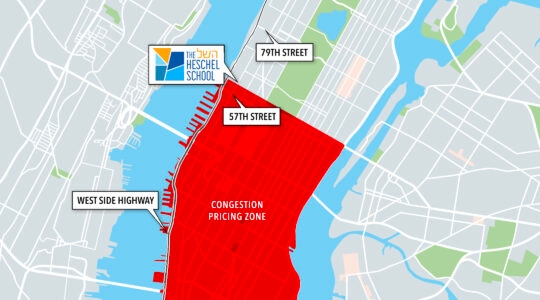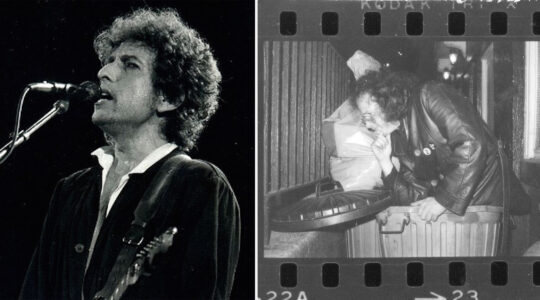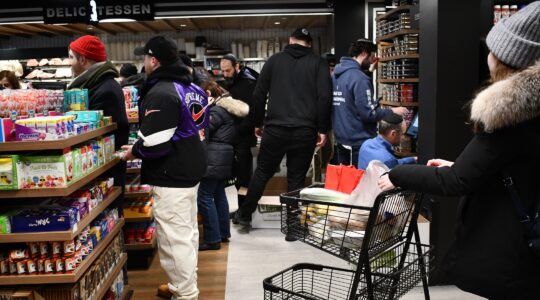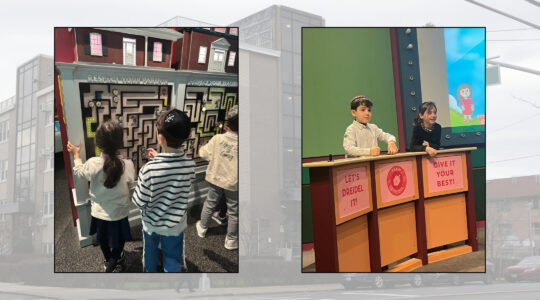Seventy years after the decimation of Hungarian Jewry in 1944, the surviving community is balancing fear and hope in a country that has rarely rewarded the latter.
On the hopeful side, the World Jewish Congress reports that “despite anti-Semitic rumblings, Hungary Jews have every facility to express their Jewish heritage and religious life.” There are 20 synagogues in Budapest (with several more in the provinces), kosher butchers and kosher bakeries. The American Jewish Joint Distribution Committee provides meals, home care and medical attention to thousands, along with cultural opportunities. The Joint’s regional director Diego Ornique, who is based in Budapest, told The Jewish Week, “Hungary’s Jews are innovating Jewish life in their country and building a strong Jewish life on their own terms.”
And yet, anxiety is soaring. Jobbik, a neo-fascist, anti-Semitic party, is the third largest in Hungary. Holocaust denial is a crime, but whitewashing complicity with the Nazis is commonplace. According to one survey by an agency of the European Union, 91 percent of Hungarian Jews say anti-Semitism is getting stronger.
Last month, the Mazsihisz, the Association of Hungarian Jewish Communities, voted 76-2 to stay away from the Hungarian government’s proposed 1944 memorial commemorations, because they said that memorial creates the impression that all of Hungary was the victim of Germany, ignoring the Holocaust’s Jewish specificity.
“I understand the sensitivity,” Elie Wiesel told The Jewish Week of the protests. “The Hungarians were not our allies. They were Hitler’s allies. It doesn’t mean that here or there wasn’t a good person, as always, but Hungarians were anti-Semitic.”
A 2012 ADL survey of Europe concluded, “Levels of anti-Semitism have increased most dramatically in Hungary.” Asked if Jews still talk too much about the Holocaust, 63 percent of Hungarians said yes, the most among the Europeans, compared to 43 percent of Germans and 53 percent of Poles. Asked if Jews are responsible for the death of Jesus, 38 percent of Hungarians said yes, considerably more than any country but Poland.
Estimates of the Jewish population, from 35,000 to 120,000, are difficult because many who survived the Nazis and Communists decided to raise their children as non-Jews. And yet, The New Yorker reports, “Almost every Budapest Jew knows someone who discovered his or her Jewish identity as an adult.” A Chabad rabbi told us, suggested that as many as eight of 10 Jews there “can tell you when they first found out.”
A New Yorker profile of former high-ranking and anti-Semitic Jobbik leader Czandid Szegedi revealed that he was raised Christian, only to discover much later that his grandmother was a Jewish survivor of Auschwitz, ending his career in Jobbik. He now studies with Chabad. He told The New Yorker, “My grandmother thought for sure there would be deportations again, and there would be a Holocaust again. As fast as we can, we have to assimilate, evaporate, to save the family in the future.” Even his Chabad teacher, a Hungarian, had a similar experience: “My grandmother decided after the war that the main goal of her life was to make all of her children marry non-Jews,” but she was not always successful.
The New York Jewish Week brings you the stories behind the headlines, keeping you connected to Jewish life in New York. Help sustain the reporting you trust by donating today.




